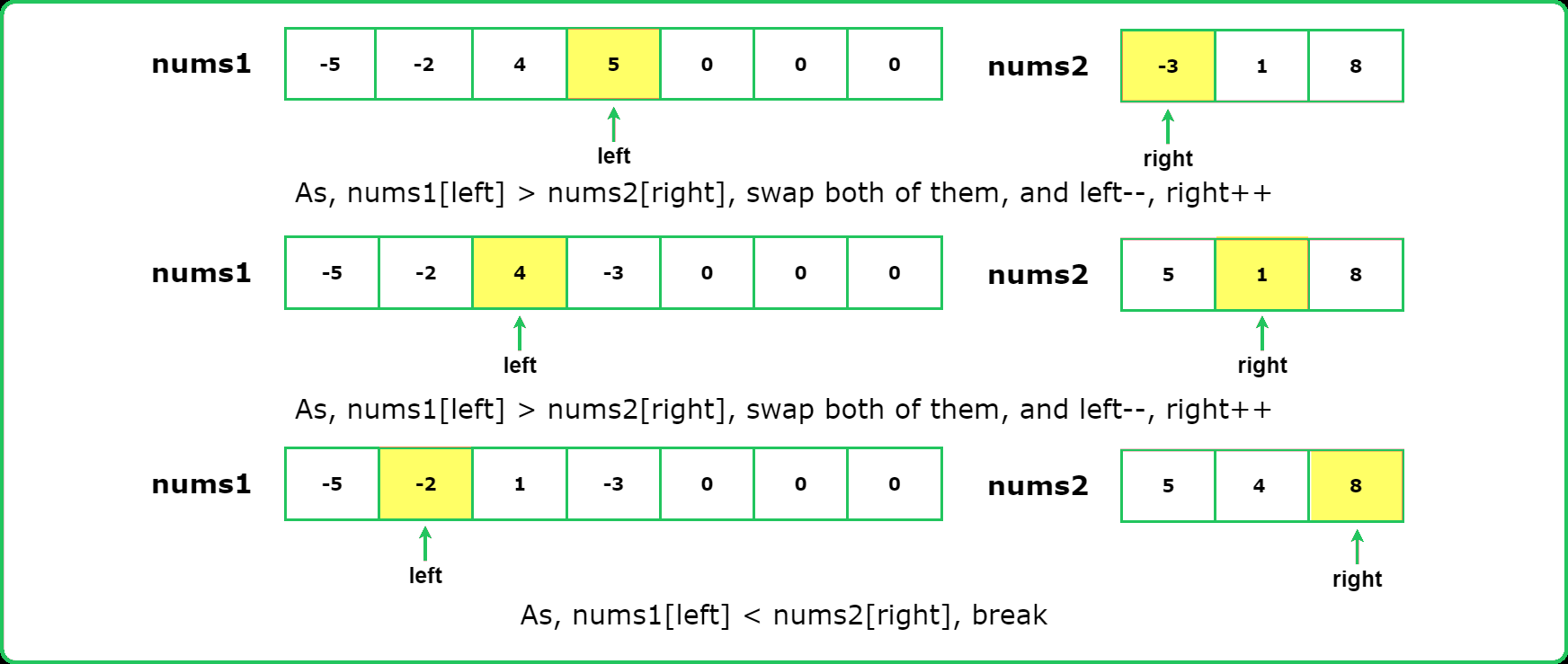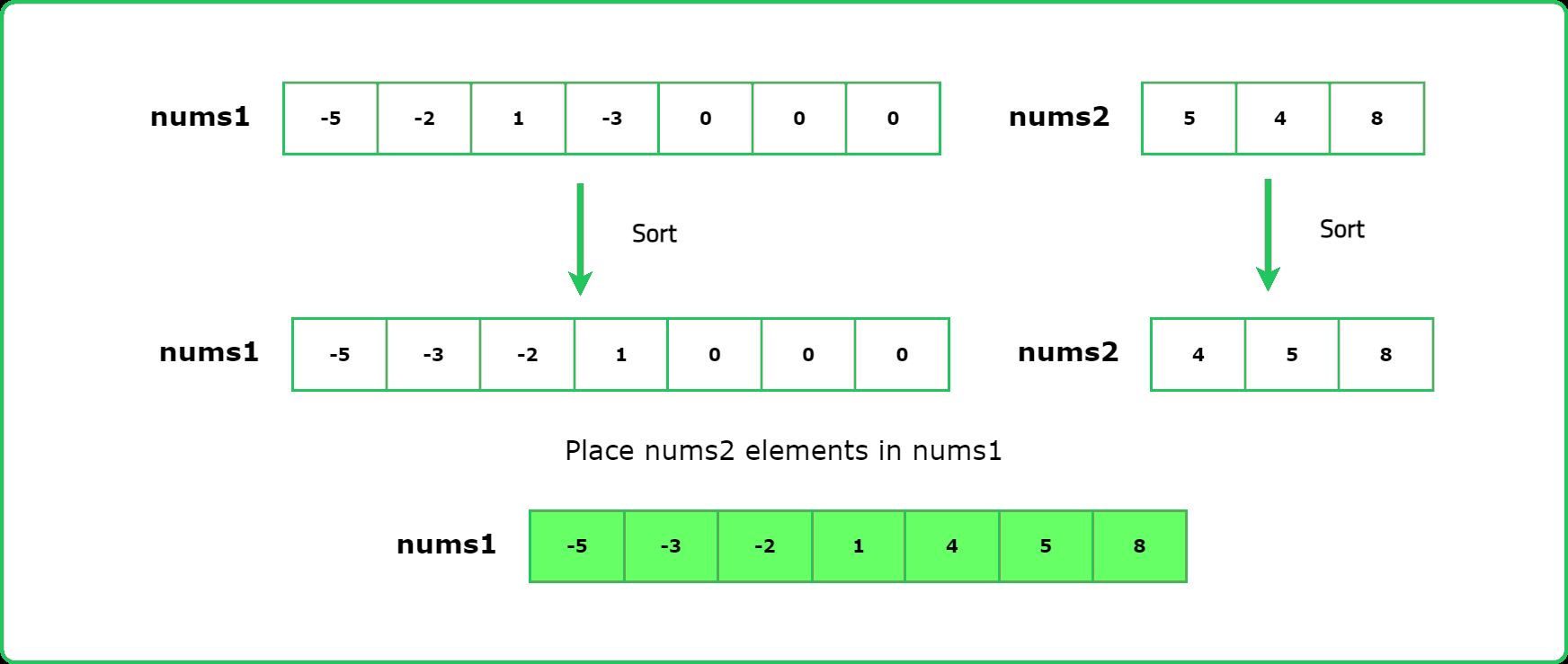Merge two sorted arrays without extra space
Arrays
FAQs(Hard)
Hard
- Fun fact: This type of problem is commonly encountered when programmers work with databases
- If you have two sorted lists of records (perhaps from two different databases), and you need to merge them into a single sorted list, you might use this type of algorithm
- Similarly, this is also a key part of how 'merge sort', a popular and efficient sorting algorithm, works! So, when your data in different apps or systems need to be sorted and merged together, this type of programming solution often comes into action
Given two integer arrays nums1 and nums2. Both arrays are sorted in non-decreasing order.
Merge both the arrays into a single array sorted in non-decreasing order.
- The final sorted array should be stored inside the array nums1 and it should be done in-place.
- nums1 has a length of m + n, where the first m elements denote the elements of nums1 and rest are 0s.
- nums2 has a length of n.
Examples:
Input: nums1 = [-5, -2, 4, 5], nums2 = [-3, 1, 8]
Output: [-5, -3, -2, 1, 4, 5, 8]
Explanation: The merged array is: [-5, -3, -2, 1, 4, 5, 8], where [-5, -2, 4, 5] are from nums1 and [-3, 1, 8] are from nums2
Input: nums1 = [0, 2, 7, 8], nums2 = [-7, -3, -1]
Output: [-7, -3, -1, 0, 2, 7, 8]
Explanation: The merged array is: [-7, -3, -1, 0, 2, 7, 8], where [0, 2, 7, 8] are from nums1 and [-7, -3, -1] are from nums2
Input: nums1 = [1, 3, 5], nums2 = [2, 4, 6, 7]
Constraints
- n == nums2.length.
- m + n == nums1.length.
- 0 <= n, m <= 1000
- -104 <= nums1[i], nums2[i] <= 104
- Both nums1 and nums2 are sorted in non-decreasing order.
Hints
- "Use three pointers: i = m - 1 (last valid element in nums1) j = n - 1 (last element in nums2) k = m + n - 1 (last index in nums1)"
- "If nums1[i] > nums2[j], place nums1[i] at nums1[k]. Otherwise, place nums2[j] at nums1[k]. Move the pointer(s) accordingly."
Company Tags
Texas Instruments
Siemens Healthineers
Oracle
Epic Systems
Robinhood
Freshworks
Qualcomm
MongoDB
NVIDIA
Ernst & Young
Square
Electronic Arts
Salesforce
Walmart
Cloudflare
Bain & Company
Intel
Swiggy
Chewy
Pinterest
Johnson & Johnson
GE Healthcare
Zomato
Nutanix
Red Hat
Google
Microsoft
Amazon
Meta
Apple
Netflix
Adobe

